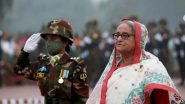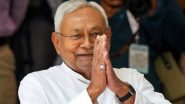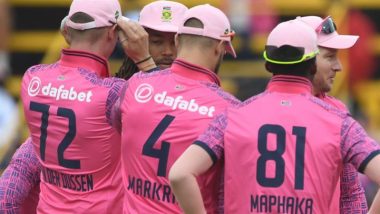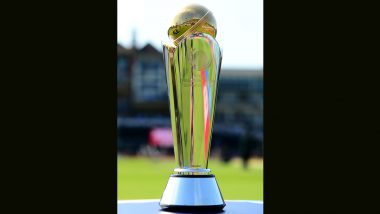Loagos, Jun 11 (AFP) Since 1993, June 12 has been more than just a date in the calendar for Nigerians. For many, it became a symbol of how the military government crushed long-held hopes of a return to civilian rule.
Last week, President Muhammadu Buhari made the unexpected announcement that from next year, June 12 would be a public holiday and commemorated as "Democracy Day". He would also give Nigeria's highest honour to Moshood Abiola -- a Muslim businessman from the Yoruba-dominated southwest who had been on track to win the vote when it was annulled.
Reaction to the announcement has dominated the Nigerian media for the last week in a clear sign of the passions the events of 25 years ago still arouse in Africa's most populous nation.
Buhari said June 12 was "far more symbolic of democracy" than May 29, which has been celebrated as "Democracy Day" since 1999 when the generals finally relinquished power.
For Abiola's family, who will receive the posthumous award of Grand Commander of the Federal Republic (GCFR) tomorrow, and his supporters, it holds huge significance. The GCFR is usually reserved for former heads of state: the award for Abiola, they say, is formal recognition that he was the rightful winner.
"The government has officially validated the integrity of the fair and free election that was criminally annulled by the Ibrahim Babangida junta," said human rights lawyer Femi Falana.
Yinka Oduamkin, of the ethnic Yoruba socio-cultural lobby group Afenifere, said: "Although belated coming after 25 years we are happy that Abiola's victory has been recognised at last." "What the president has done is to correct the mistakes of the past," added Dapo Thomas, a history and political science lecturer at the Lagos state university.
"Buhari should be commended for doing what past leaders could not do."
Nigeria gained independence from Britain in 1960 but by 1993 had been under military rule for more than two decades.
Babangida, a self-styled "evil genius" who ousted former military ruler Buhari in a coup in 1985, called the election after several previous postponements.
Local and foreign observers adjudged the vote the freest, fairest and most peaceful in the country's short but turbulent post-independence history.
Its cancellation by Babangida, citing a court order and under pressure from powerful vested interests, sparked protests and a political crisis and he was forced to step aside. Before leaving, Babangida appointed an interim government headed by prominent industrialist Ernest Shonekan but he was sacked after just three months by General Sani Abacha.
Abacha had Abiola arrested and charged with treason for declaring himself president after the vote that saw pro-democracy activists flee into exile and others imprisoned.
The widely-hated general, who is suspected to have embezzled USD 2.2 billion of public money, died in mysterious circumstances on June 8, 1998.
One month later, Abiola fell ill and died just days before he was due to be released from prison.
Within a year, civilian rule returned to Nigeria with another former military ruler, Olusegun Obasanjo, as president of the fourth republic.
For some in Nigeria, Buhari's announcement was less about righting a historical wrong than canny political manoeuvring, as elections approach in February next year.
The 75-year-old leader is hoping to secure a second, four-year term, despite question marks over his age and health after he spent months receiving treatment for an undisclosed illness.
The two old generals Obasanjo and Babangida, who retain political influence, have in recent months both criticised their former comrade Buhari and called on him to step down. Buhari's move to commemorate Abiola has been seen as a way of silencing both men: Obasanjo could have done the same for his Yoruba kinsman during his eight years in power but did not.
Babangida -- and anyone else involved -- would likely prefer not to have to go over the reasons for the annulment and tricky questions about the brutal Abacha regime it led to. But by immortalising local hero Abiola, it could also help Buhari secure vital support in the southwest, particularly the crucial swing state of Lagos, where the 2015 result was tight.
Buhari has also reportedly had strained ties with APC founder Bola Tinubu, a former Lagos state governor and political godfather who has been seen as a kingmaker. Already, opposition groups have questioned Buhari's motives.
Oduamkin said Abiola's name should not be used for "cheap political gains" while the main opposition Peoples Democratic Party (PDP) said it was a "sign of political desperation". (AFP) KIS
(This is an unedited and auto-generated story from Syndicated News feed, LatestLY Staff may not have modified or edited the content body)













 Quickly
Quickly




















